Live to Eat? Here Are 5 Ways Your Food Can Be Healthier and Eco-Friendly Too!
Sustainable food isn’t just a means to eat better. It can also help feed the hungry, empower farmers and reduce the strain of food wastage on the planet.

Why do we need to eat sustainably? Our food habits can make a world of difference to our surroundings. What we eat isn’t simply a means of personal nourishment — it affects the environment and all the communities involved in growing and distributing the produce. Eschewing the appeal of fast foods, cheap mass-produced items and unsustainable farming, more people are steadily choosing to take the sustainable route to eating.
Sustainable food isn’t just a means to eat healthier, but it can also help to feed the hungry, empower farmers and reduce the strain of food wastage on the planet. Sustainable eating is one of the biggest food trends of 2017—here’s how you can do your part.
Join the organic food movement
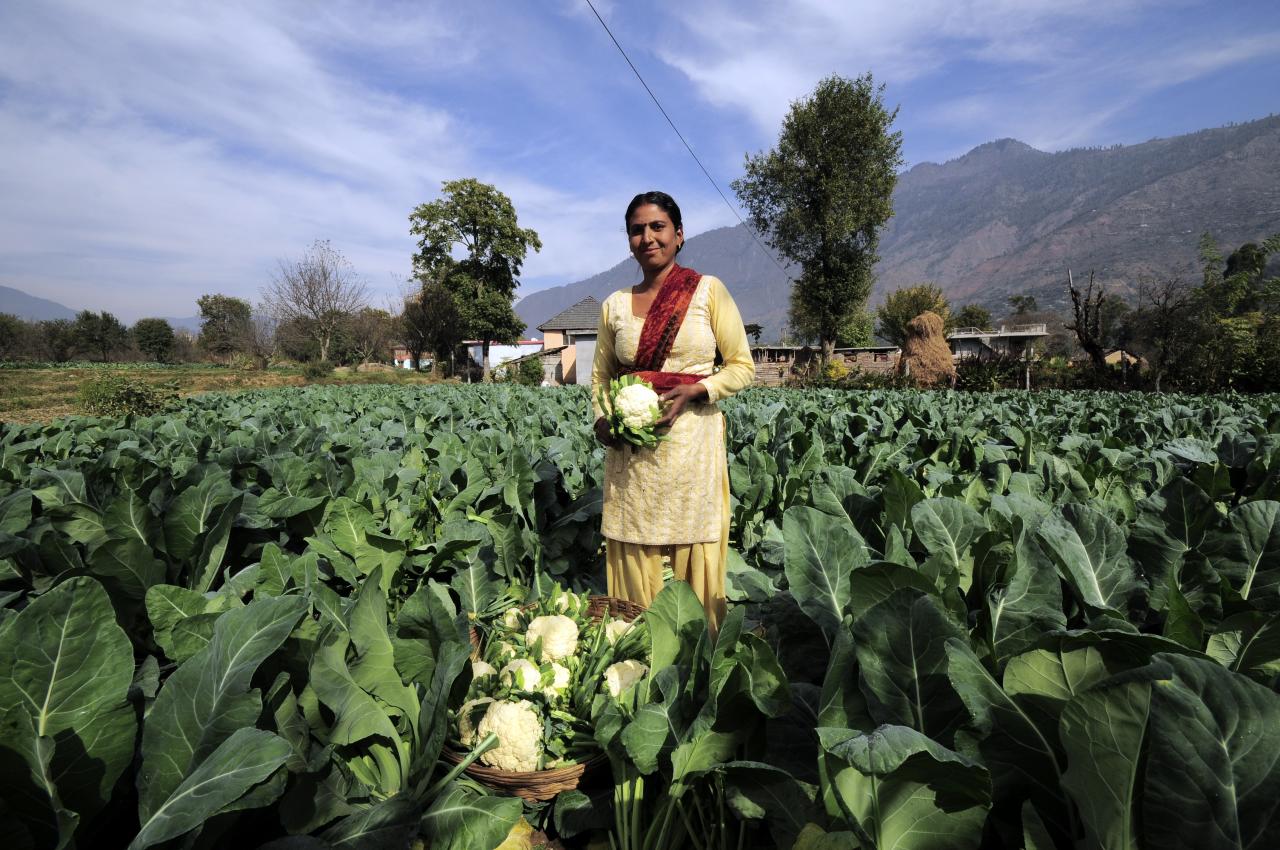 Image source: CIAT (NP Himachal Pradesh 80Uploaded by mrjohncummings) [CC BY-SA 2.0], via Wikimedia Commons
Image source: CIAT (NP Himachal Pradesh 80Uploaded by mrjohncummings) [CC BY-SA 2.0], via Wikimedia Commons
Eating organic has many pros — it’s pesticide-free, nutritional, beneficial to the farmers and kind on the environment too. And farmers aren’t the only ones. In Gurgaon, a group of residents have come together to start a community organic farming initiative. Since its start in October 2016, 70 members have joined the initiative and the production volumes have exceeded the expectations of Dr Deen Mohammad Khan, district horticultural officer, who is spearheading the project.
“It has been a wonderful experience and 80% of the members want to continue,” he says. “We didn’t expect so much organic produce, and are now working to initiate sales for the community, friends and family. We have also initiated a source testing system, which is not really available in India—we hardly know where our food comes from. All the products are given barcodes, and consumers can also use it to test the authenticity of the produce they buy.”
On varying scale, similar initiatives are coming up around the country. In 2016, Sikkim became India’s first fully organic state. Chef Karen Anand helms a farmer’s market in Pune while Kavita Mukhi has been running a similar venture in Mumbai since 2010. In Chennai, farming enthusiasts come together to start an Organic Farmers’ Market, selling produce through various outlets around the city.
Opt for local and seasonal produce
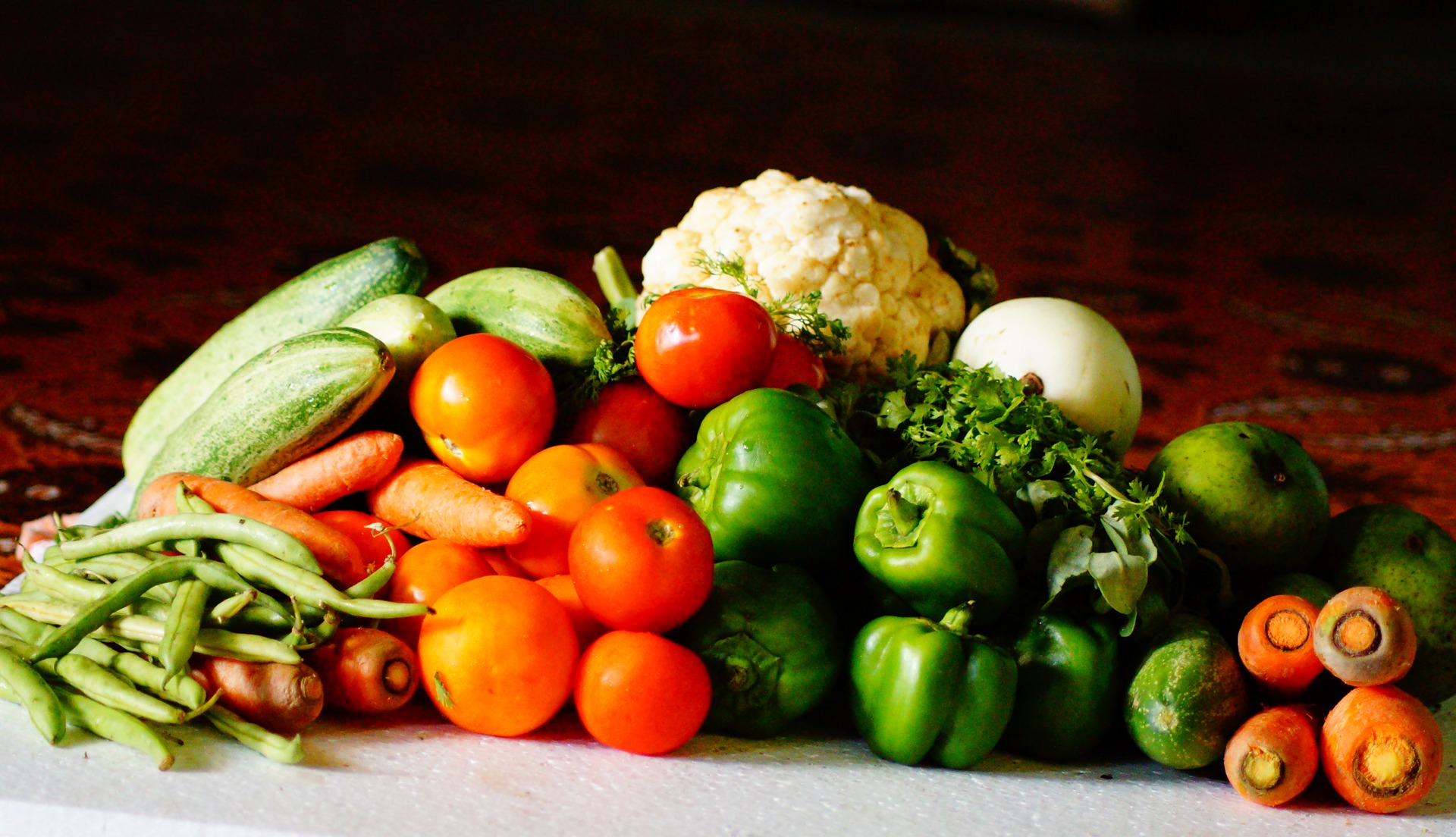 Image source: Pixabay
Image source: Pixabay
Over the years, an array of imported foods and ingredients has found a strong following. From Belgian apples and Californian almonds to Kobe beef and Norwegian salmon, imported foodstuff command astronomical prices and are considered the USP of many a best-selling restaurant.
The best way to eat sustainably is to opt for local produce. Buying directly from local markets not only gives you access to fresher ingredients, but also benefits local farmers. Emphasizing on seasonal produce is also important —fresh healthy produce is definitely healthier than those brought out of cold-storage. Even high-end restaurants are realising the benefits of sourcing locally and adapting gourmet recipes to include ingredients sourced from local farmers and producers.
Opting for fair-trade purchases is an added bonus, as you can be assured that the farmers receive the right price for their produce.
You might also like: Swooning Over China’s Vertical Gardens? Just Grow a Vertical Garden in Your Own Terrace!
Grow your own food, or at least some of it.
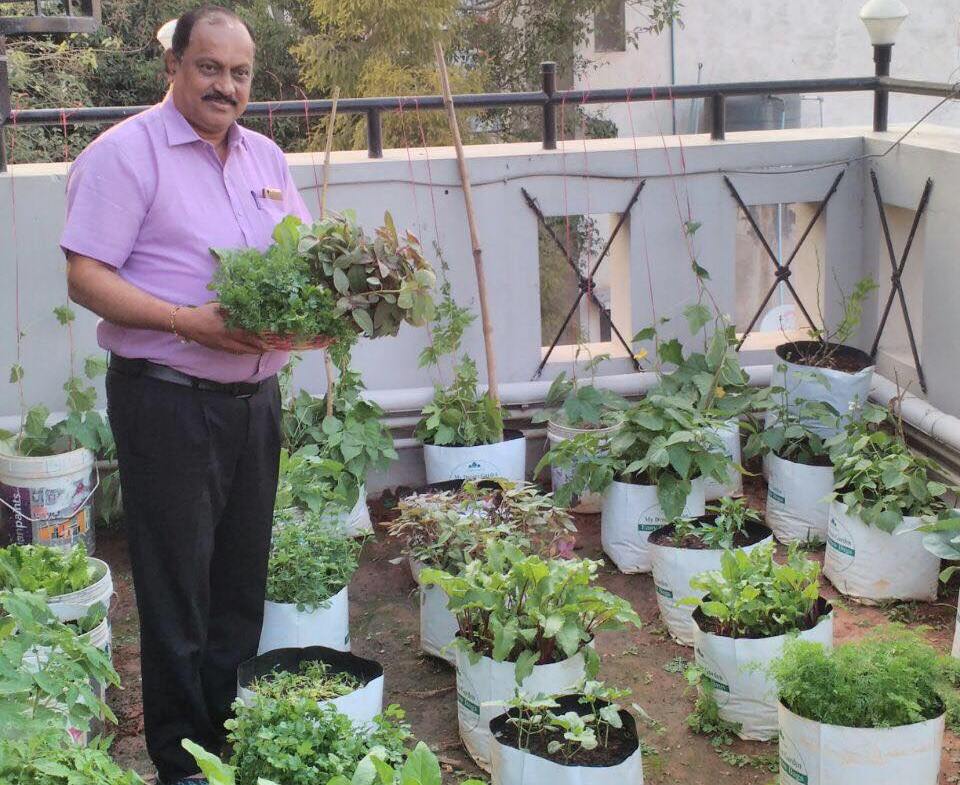 Image source: My Dream Garden
Image source: My Dream Garden
As more people realise the benefit of growing their own foods, kitchen gardens are coming back in vogue. Urban horticulture enthusiasts are taking to their terraces and walls to set up innovative gardens at home.
For time- and space-strapped gardening enthusiasts, a host of tools have arrived to ease the process. My Dream Garden, a Bengaluru-based organisation, helps individuals learn the process of gardening and has devised its own replacement for conventional gardening tools. Over four years, they have developed over 1,000 gardens and also organised gardening workshops.
Ashok Kumar, founder of My Dream Garden, says, “We offer grow bags that are long-lasting and easy to maintain. Procuring soil is an issue in Bengaluru, and is also difficult to dispose or shift the product. We have developed our organic growth media to replace the soil. We can help maintain gardens too, but we want people to grow their own plants. We train them in their own gardens, and the demand has only grown over the years.”
You can also consider options like hydroponic farming, green houses and tools like Altifarm, a mobile tiered garden, to start gardening within small spaces.
Cooking your own food keeps your eating habits fuss-free and healthy.
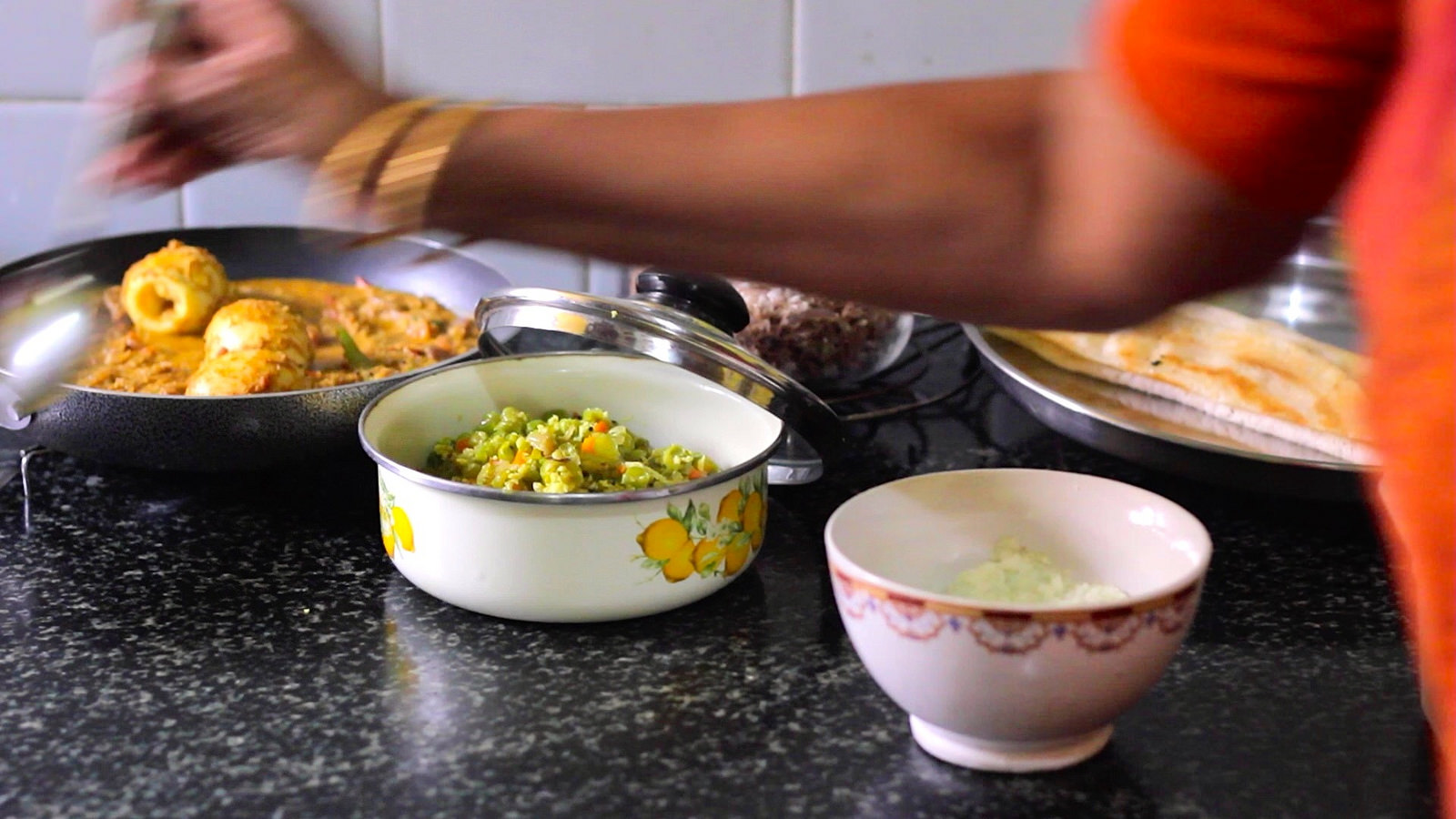 Image source: Flickr
Image source: Flickr
Turning to takeaways or eating out isn’t a trend anymore. In a hectic world, it is a cultural shift. New restaurants open their doors every week, and a host of startups and food businesses offer takeaway and delivery services. While these may be convenient, eating out is rarely the golden ticket to healthy lifestyle or sustainable eating.
Instead, cook your own food, focusing on fresh ingredients and healthy recipes. Clean and simple is gathering steam as chefs and foodies alike turn towards sustainable eating options.
You can even make your own hummus and pesto — these international recipes may seem terribly complicated, but most are as simple as our home-made chutneys. Plus, they are devoid of excess oil and preservatives used in conventional packaged foods. Indians have traditionally made their own pickles and sauces, as well as sweets and snacks. Perhaps it’s time to add foreign flavours to the mix too.
Don’t toss your food waste – donate or reuse.
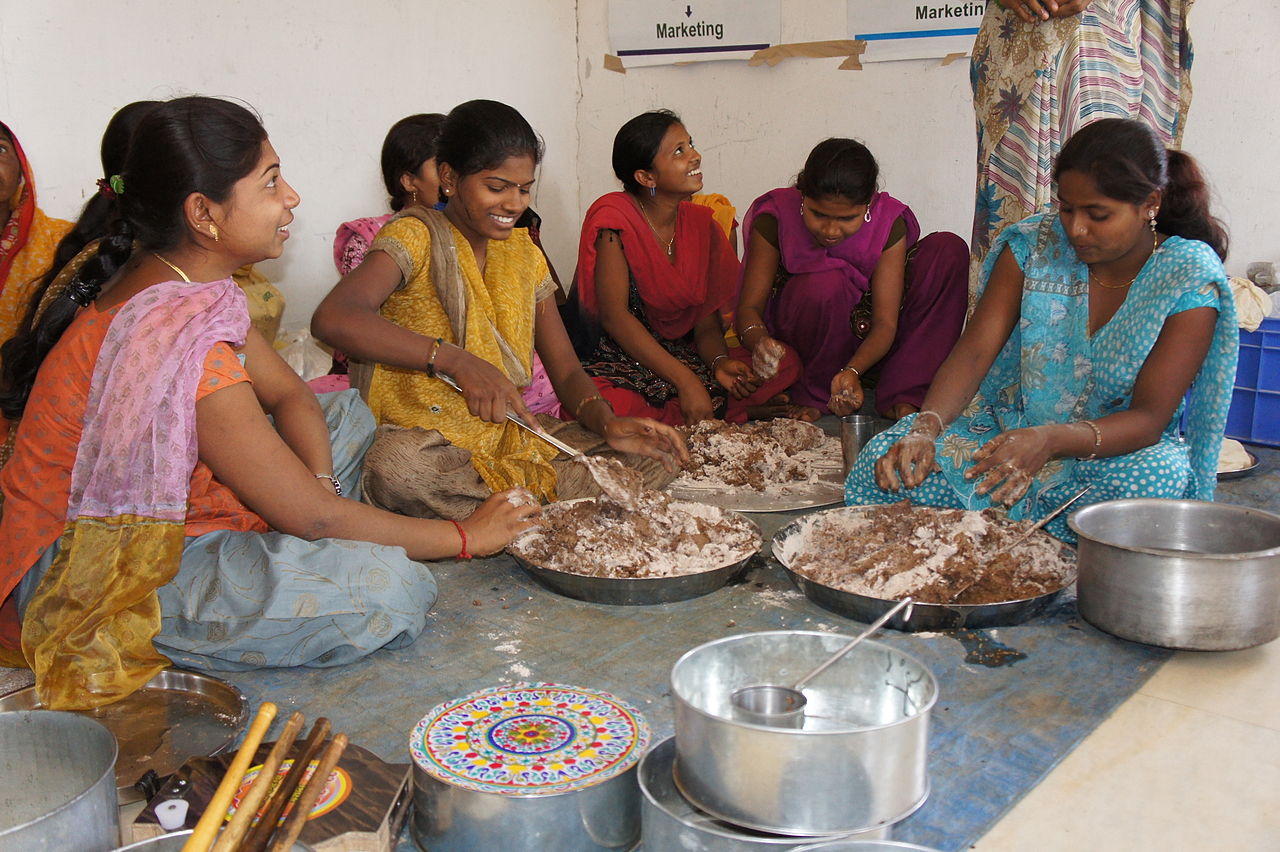 Image Source: Crops for the Future (Own work) [CC BY-SA 3.0], via Wikimedia Commons
Image Source: Crops for the Future (Own work) [CC BY-SA 3.0], via Wikimedia Commons
Food waste may be largely bio-degradable but the lack of proper segregation and increasing food wastage isn’t merely building the pressure on waste management, but also gradually contributing to the food crisis. While food security is a matter of governance, each of us can do our part.
Keep food waste in your own home with simple steps — plan your shopping and don’t cook more than you need. For peels and organic waste, try composting or make fertilizers for your garden.
You might also like: Learn the Art of Composting in Your Home & Watch Your Kitchen Waste Turn to Wealth
If you have of food left over post a party, donate it. Organisations like No Food Waste, which operates in six cities including Delhi NCR, Ahmedabad and Chennai, accept excess items from party venues and restaurants to feed the underprivileged and homeless.
Check out My Dream Garden’s website, click here to contact the team. To know more about the Gurgaon Community Garden initiative, contact Dr Deen Mohammad Khan here.
Like this story? Or have something to share? Write to us: [email protected], or connect with us on Facebook and Twitter.
NEW: Click here to get positive news on WhatsApp!
This story made me
- 97
- 121
- 89
- 167
Tell Us More
We bring stories straight from the heart of India, to inspire millions and create a wave of impact. Our positive movement is growing bigger everyday, and we would love for you to join it.
Please contribute whatever you can, every little penny helps our team in bringing you more stories that support dreams and spread hope.



















